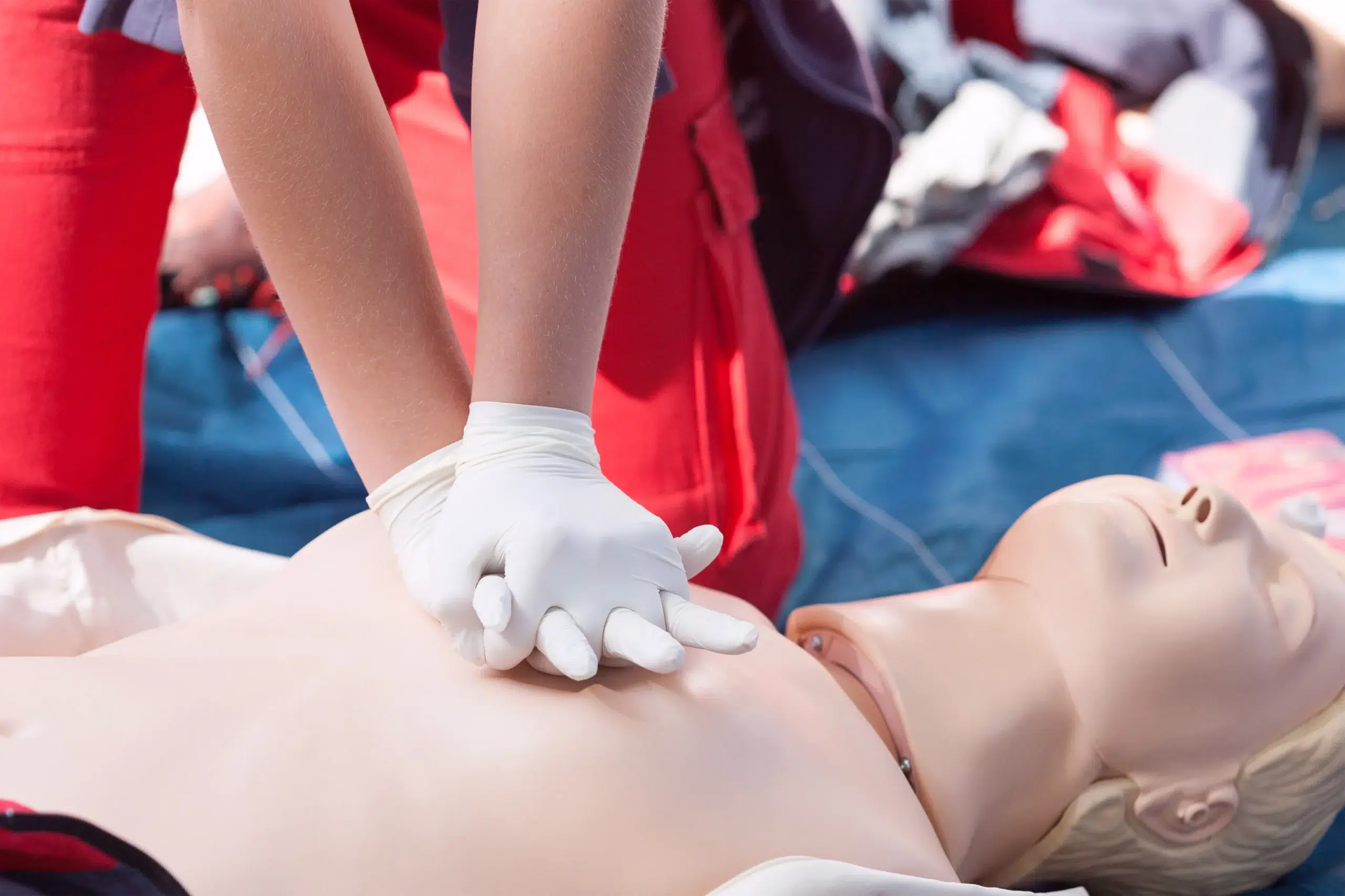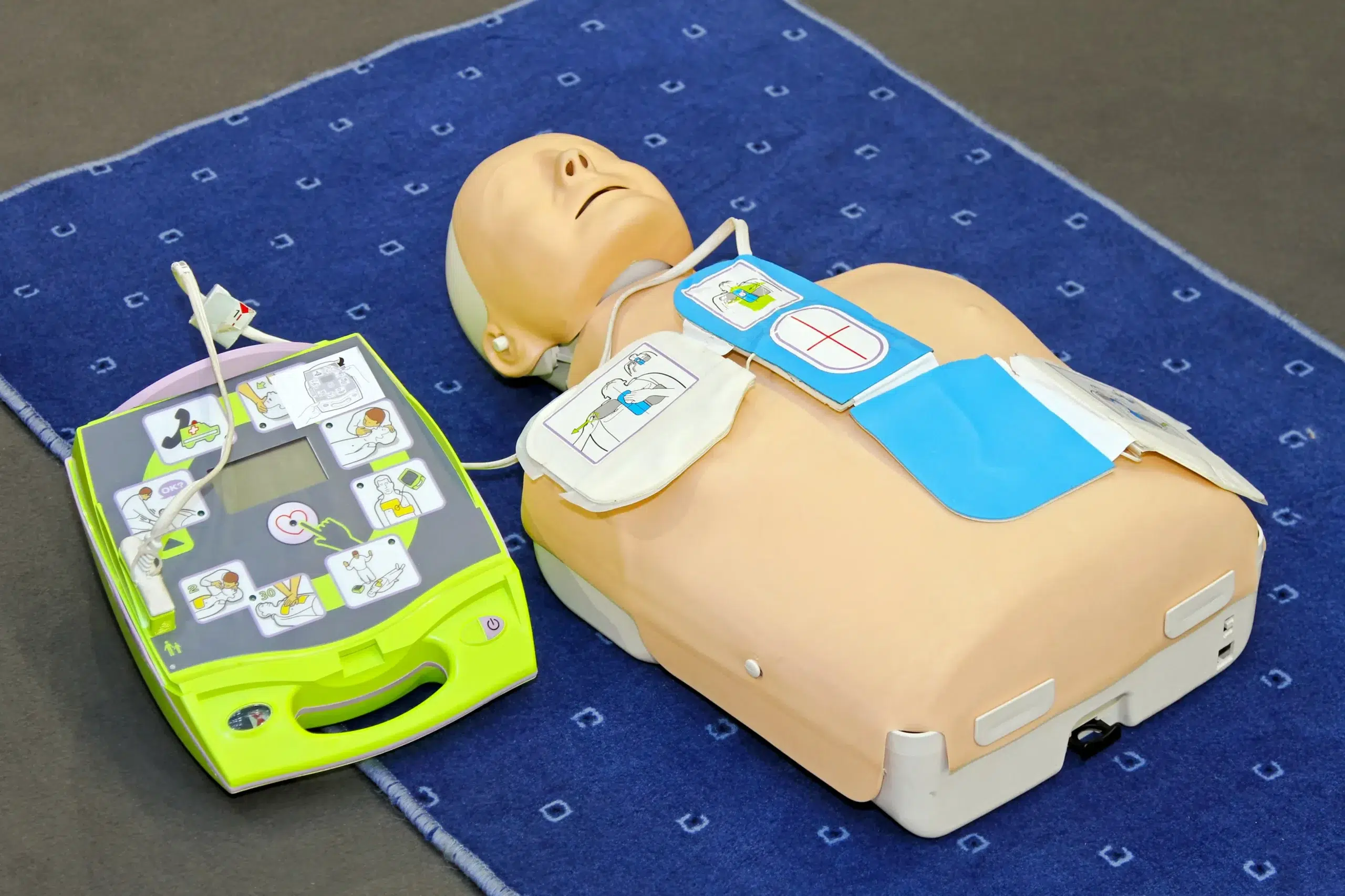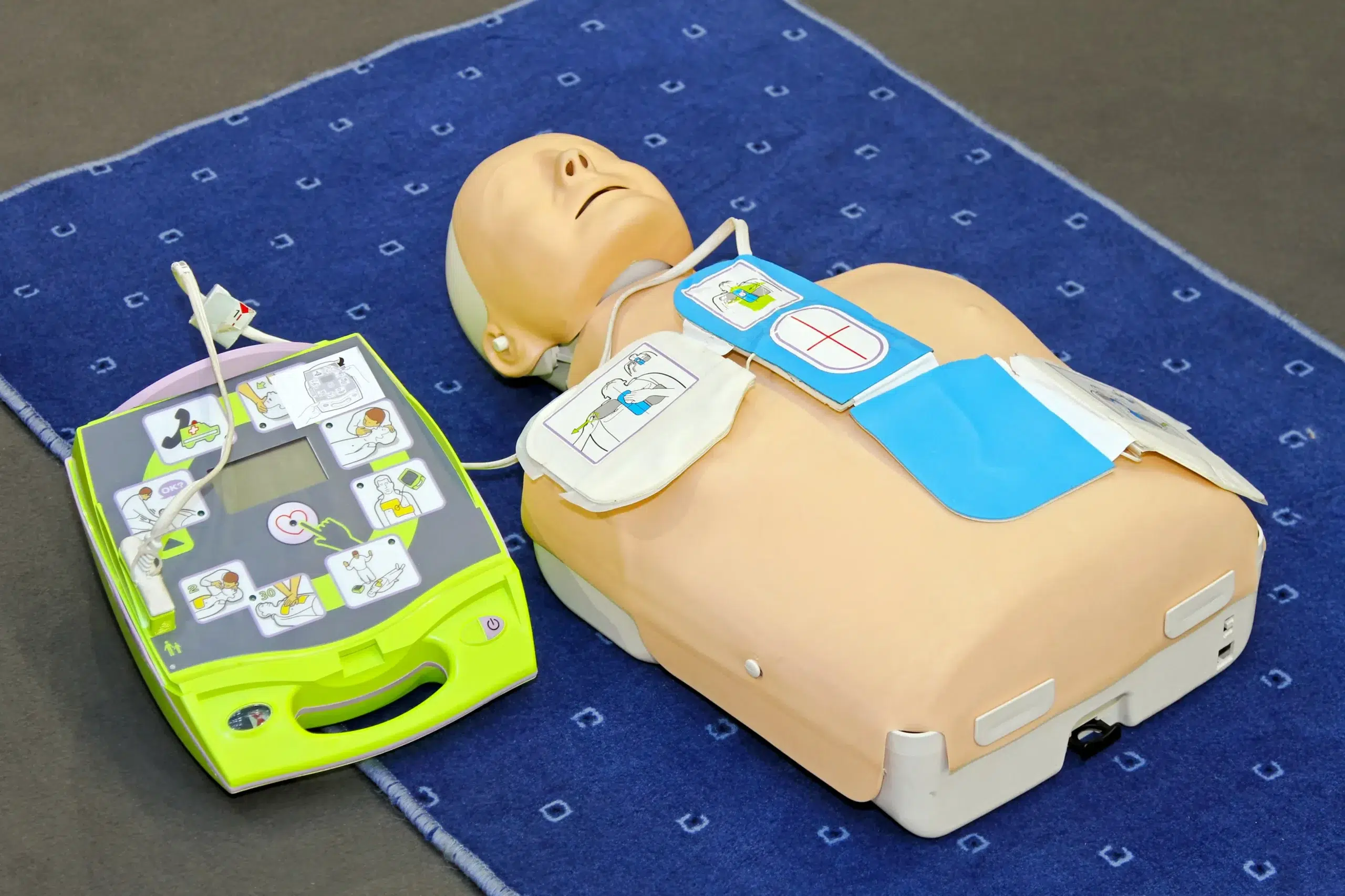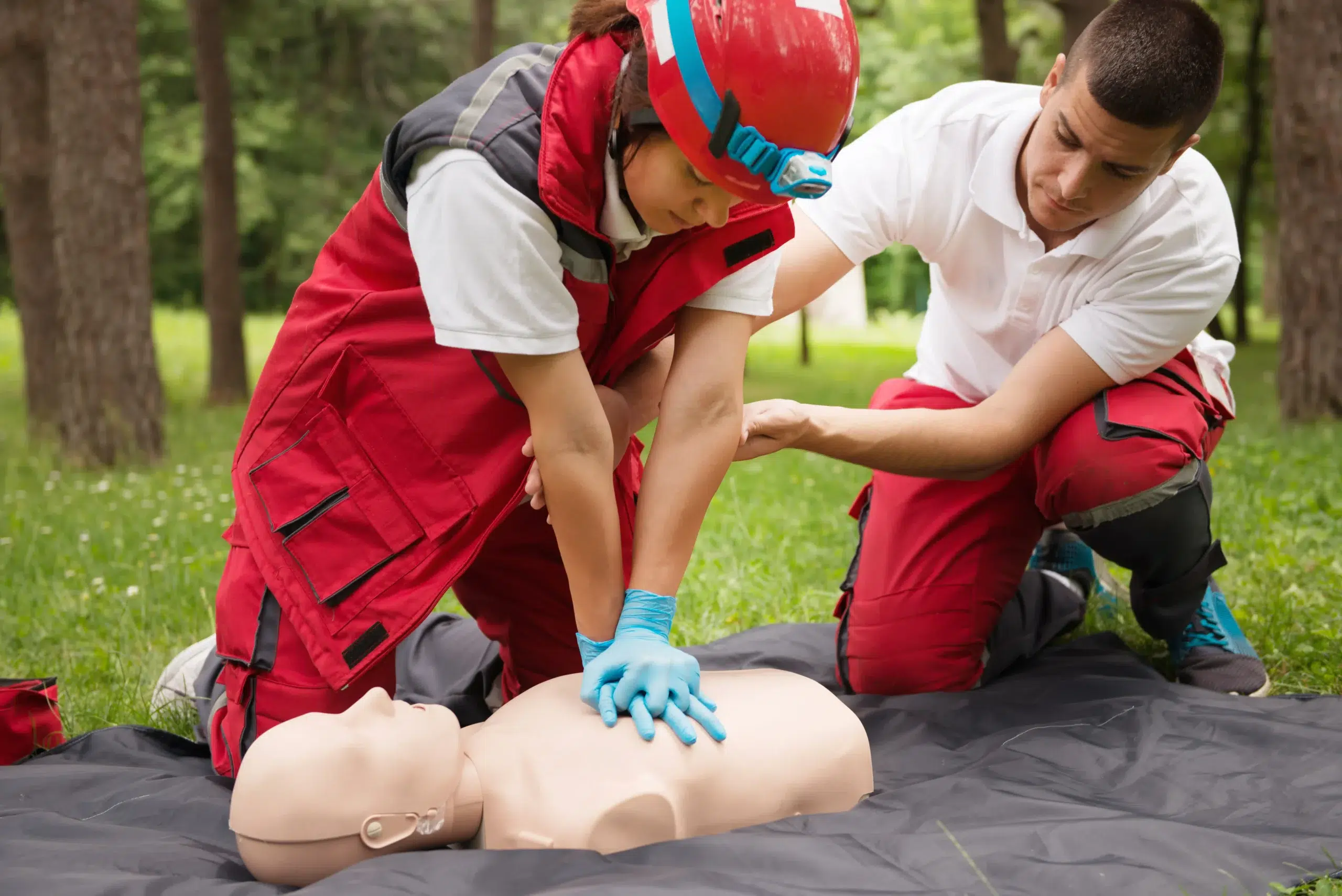In Oakland’s vibrant community, ensuring the safety and well-being of our children is paramount. Healthcare professionals, educators, and caregivers alike play a crucial role in responding to emergencies involving infants and children. Pediatric Advanced Life Support (PALS) certification provides the essential skills and knowledge to handle these critical situations effectively. This article explores the significance of pediatric advanced life support in Oakland, highlighting the comprehensive training, the benefits of certification, and how it strengthens our community’s ability to protect our youngest members. We’ll also delve into the specific challenges and opportunities related to pediatric advanced life support in Oakland, providing valuable insights for anyone dedicated to providing the best possible care for children.
Key Takeaways
- PALS certification equips you with essential skills for pediatric emergencies: From airway management to resuscitation techniques, PALS training provides the knowledge and confidence to handle critical situations involving infants and children, ultimately improving patient outcomes.
- Choosing the right PALS course provider is crucial: Look for accredited providers with experienced instructors, comprehensive curriculums, and convenient scheduling options like those offered by Oakland CPR Courses. Consider factors like class size and location to maximize your learning experience.
- Preparation and ongoing development are key to PALS success: Review the PALS Provider Manual beforehand, ensure your BLS certification is current, and explore continuing education opportunities to stay up-to-date with the latest guidelines and best practices in pediatric care.
What is Pediatric Advanced Life Support (PALS)?
Pediatric Advanced Life Support (PALS) certification is crucial for healthcare providers specializing in pediatric care. It equips professionals with the skills to handle emergencies involving infants and children, enabling them to deliver life-saving interventions when seconds count. In these critical situations, PALS-trained professionals can make quick, informed decisions, significantly improving patient outcomes. This specialized training goes beyond basic life support, focusing on the physiological and developmental needs of young patients. The American Heart Association offers valuable resources for understanding the broader context of pediatric care.
Key PALS Training Components
PALS training provides healthcare professionals with comprehensive skills, from advanced airway management to resuscitation techniques. The program emphasizes a systematic approach to pediatric assessment, enabling providers to quickly identify and address critical conditions. Participants learn to recognize and manage respiratory distress, cardiac emergencies, and shock in infants and children. Practical training sessions reinforce these skills through realistic simulations, building confidence and proficiency in high-pressure scenarios. Oakland CPR Courses offers PALS certification that meets these rigorous standards.
PALS Importance in Pediatric Healthcare
PALS training is vital for improving pediatric emergency care. By standardizing treatment protocols and emphasizing rapid response, PALS helps healthcare teams work together seamlessly during crises. This coordinated approach minimizes errors and improves outcomes for young patients. The training also emphasizes post-resuscitation care, ensuring children receive the ongoing support they need for full recovery. PALS certification is invaluable for healthcare providers dedicated to delivering the highest standard of pediatric care. Oakland CPR Courses offers group discounts, making high-quality training accessible to teams.
Common PALS Certification Misconceptions
One misconception is that PALS certification is only for doctors and nurses. Many healthcare professionals, including paramedics, respiratory therapists, and physician assistants, benefit from this training. Another misconception is that PALS certification is a one-time event. Providers must renew their certification regularly to maintain proficiency. Oakland CPR Courses offers a low price guarantee, making it accessible to a wide range of professionals. Whether for career advancement or enhancing skills, PALS certification is a valuable investment.
Top Oakland PALS Certification Providers
Finding the right Pediatric Advanced Life Support (PALS) certification course is crucial for healthcare providers working with children. Here’s a look at some PALS certification options in Oakland:
Oakland CPR Courses
Oakland CPR Courses, offered through Safety Training Seminars, provides American Heart Association PALS certification. These courses cover essential life-saving techniques for pediatric emergencies. They’re designed for healthcare professionals, including doctors, nurses, paramedics, and other specialists who regularly work with infants and children. Oakland CPR Courses focuses on providing high-quality training with excellent customer service and competitive pricing. Their convenient Oakland location serves Alameda, Oakland, and Berkeley. Learn more about their group discounts and low-price guarantee.
Project Heartbeat
Project Heartbeat offers another option for PALS certification and renewal in Oakland. Their instructor-led courses incorporate videos and simulations, creating a dynamic learning environment. These simulations allow participants to practice their skills in realistic pediatric emergency scenarios.
AHA-Affiliated Courses
For those seeking American Heart Association-aligned training, several providers in Oakland offer courses featuring the RQI (Resuscitation Quality Improvement) program. This program offers a blended learning approach, often combining online modules with in-person skills sessions. This format provides flexibility for busy professionals. CPR Classes Oakland is one resource for finding these AHA-affiliated courses for BLS, ACLS, and PALS certifications.
Red Cross PALS Certification
The American Red Cross also offers a PALS certification course. They emphasize a scientifically rigorous curriculum designed to equip healthcare providers with the knowledge and skills to respond effectively to pediatric emergencies. It’s important to note that while the Red Cross offers PALS training, it’s distinct from the American Heart Association’s PALS course. Both programs aim to prepare healthcare providers for pediatric emergencies, but they differ in their specific content and approach.
PALS Course Structure and Content
PALS certification blends online learning with hands-on skills sessions. This format offers flexibility and ensures you develop both theoretical knowledge and practical skills. Let’s take a closer look at each component:
Online Learning Components
The PALS course begins with a self-paced online module, typically requiring 3–4 hours. This portion covers essential concepts and prepares you for the in-person skills session. Oakland CPR Courses uses high-quality online resources to make this part of the training engaging and effective.
Hands-on Skills Testing
After completing the online modules, you’ll participate in a hands-on skills session at our Oakland training center. This portion focuses on practicing essential techniques and demonstrating proficiency in key PALS skills. The skills testing session usually takes about 30–40 minutes. You’ll receive your official PALS certification card the same day you complete both the online component and the in-person skills check.
Key Topics and Techniques
The PALS course covers a wide range of topics crucial for providing advanced life support to infants and children. You’ll learn about pediatric assessment, effective airway management techniques, and vascular access procedures. The curriculum also includes a review of basic life support (BLS) skills, instruction on administering medications, and guidance on using established algorithms for pediatric emergencies. Case studies and teamwork scenarios help you apply your knowledge and develop critical thinking skills. For a detailed look at our PALS course content, visit our American Heart Association PALS page.
Course Duration
The initial PALS course takes approximately 12 hours to complete, including both the online and in-person components. Renewal courses for those recertifying are shorter, typically around 7 hours. We offer various course schedules to accommodate busy professionals and personal commitments. Check out our discount group class options for competitive pricing and convenient scheduling. We also offer a low price guarantee, ensuring you receive high-quality training at the best possible value.
PALS Certification Cost and Value in Oakland
Getting your Pediatric Advanced Life Support (PALS) certification is an investment in your career and the children you care for. But how much does PALS certification cost in Oakland, and what value does it offer? Let’s break it down.
Initial Certification Price Range
In Oakland, initial PALS certification typically costs around $290. This usually covers the online portion of the PALS course, the required skills testing session, and your official certification card. It’s a comprehensive package designed to get you fully certified. Be sure to check with your chosen provider, as prices can vary. Oakland CPR Courses offers a low price guarantee, ensuring you receive a competitive rate.
Renewal Costs
Your PALS certification is valid for two years. To stay current, you’ll need to renew your certification. Renewal often involves completing continuing education units (CEUs). Many programs include around six CEU credits within their renewal package. Factor in the renewal cost when planning your long-term certification expenses.
Discounts and Promotions
Looking to save on your PALS certification? Many training centers in Oakland offer competitive pricing and discounts for groups. Some providers even offer price matching, promising the best deal in Northern California. It’s always wise to compare prices and ask about available discounts before registering.
Return on Investment
While there’s an upfront cost for PALS certification, consider the long-term return on investment. PALS certification demonstrates your commitment to high-quality pediatric care, which can open doors to more job opportunities, especially in healthcare settings focused on children. In a competitive job market, having this certification can give you an edge, potentially leading to higher earning potential and greater job security. It also equips you with essential skills to confidently handle pediatric emergencies, making you a valuable asset to any healthcare team.
Benefits of PALS Certification
Earning your PALS certification offers a range of benefits, from improved patient outcomes to better career opportunities. Whether you’re a seasoned healthcare provider or just starting out, PALS can significantly impact your professional life.
Enhance Emergency Response Skills
PALS certification equips healthcare professionals with the skills to respond effectively to pediatric emergencies. The training covers a wide range of life-saving interventions, from basic life support to advanced techniques for managing respiratory and cardiac arrest in infants and children. This specialized knowledge enables providers to make quick, informed decisions under pressure, ultimately increasing the chances of positive patient outcomes. As the Illinois Safety Center points out, PALS training ensures professionals can provide these critical interventions when every second counts.
Improve Job Prospects
In a competitive healthcare landscape, PALS certification can give you a distinct advantage. Many employers seek PALS-certified professionals, recognizing the value of this specialized training. Holding PALS certification can open doors to more specialized roles, such as positions in pediatric intensive care units or emergency departments. A Bay Area CPR article notes that PALS certification can lead to higher earning potential and greater career mobility.
Meet Professional Requirements
For many healthcare roles, PALS certification isn’t just beneficial—it’s a requirement. Hospitals, clinics, and other healthcare facilities often mandate PALS certification for professionals involved in the care of infants and children. This ensures a baseline level of competency in pediatric emergency care, safeguarding patient safety and meeting regulatory standards. Healthforce Training Center discusses how PALS certification prepares professionals for critical situations.
Build Confidence in Pediatric Emergencies
Beyond the technical skills and career advantages, PALS certification instills confidence in healthcare providers. Knowing you have the training and skills to handle pediatric emergencies can reduce anxiety and improve your ability to perform effectively under stress. This confidence translates to better patient care and a greater sense of professional fulfillment. Cascade Training’s blog post emphasizes how PALS training enhances skills and improves patient care, ultimately contributing to the overall well-being of young patients.
PALS Certification Renewal Process
Validity and Staying Current
Pediatric Advanced Life Support (PALS) certification is essential for healthcare providers working with critically ill or injured children. It’s important to remember that PALS certification is valid for two years. This timeframe ensures healthcare professionals stay up-to-date with the latest protocols and practices in pediatric emergency care. Regular renewal helps maintain a high standard of care for young patients. For more information on PALS Certification, visit the Red Cross website.
Renewal Steps
To renew your PALS certification, you must enroll in a recertification class. This process is designed to refresh and enhance the skills necessary for effective pediatric care. After successfully completing the renewal course, you’ll receive a new certification, valid for another two years. Oakland CPR Courses offers convenient PALS recertification courses to help you easily maintain your credentials.
Continuing Education Requirements
Continuing education is a key part of maintaining your PALS certification. Initial certification provides 12 Continuing Education Unit (CEU) credits, while renewal provides 6. These credits demonstrate your commitment to ongoing professional development and ensure you’re equipped with the latest knowledge and skills in pediatric advanced life support. Learn more about PALS renewal and CEUs at Project Heartbeat.
Choose the Right PALS Course in Oakland
Finding the right Pediatric Advanced Life Support (PALS) course is crucial for healthcare providers working with infants and children. With several options in Oakland, knowing what to look for is important to ensure high-quality training. This section guides you through key factors to consider when making your decision.
Provider Selection Factors
Start by researching PALS course providers in Oakland. Look for providers with a strong track record and positive reviews. Safety Training Seminars, for example, is a woman-owned American Heart Association (AHA) Training Center known for comprehensive courses and a commitment to excellent customer service. Consider factors like class size, schedule flexibility, and convenient locations when comparing providers. Smaller classes often allow for more personalized instruction and interaction with the instructor. A convenient location can make attending the course easier and less disruptive to your schedule.
Evaluate Course Reputation and Accreditation
Accreditation ensures the course meets established standards and provides credible training. Look for PALS courses accredited by a reputable organization like the American Heart Association. AHA-certified courses offer standardized, up-to-date training recognized by employers nationwide. This accreditation signifies that the content aligns with current medical guidelines and best practices for pediatric emergency care. Check if the provider offers official certification cards upon completion, essential for demonstrating your qualifications. A recognized certification ensures your training holds weight and credibility within the healthcare community.
Instructor Qualifications
The instructor’s expertise directly impacts your learning experience. Instructors should be certified and experienced in PALS. The American Heart Association’s Resuscitation Quality Improvement (RQI) program is a popular and modern approach to training medical professionals. Inquire about the instructors’ credentials and experience to ensure they have the necessary knowledge and skills to teach PALS techniques effectively. A qualified instructor creates a supportive learning environment and provides valuable feedback during practice scenarios, giving you the confidence to apply your skills in real-world situations.
Prepare for Your PALS Course
Getting ready for your Pediatric Advanced Life Support (PALS) course? A little preparation goes a long way. Here’s what you need to know to feel confident and prepared for class.
Required Study Materials
The PALS course follows the 2015 AHA Guidelines Update for CPR and ECC. Familiarizing yourself with these guidelines ahead of time can give you a real advantage. While your instructor will cover everything, pre-reading the PALS Provider Manual can help you absorb the material more effectively.
Pre-Course Requirements
Before you sign up for a PALS course, make sure you have a current Basic Life Support (BLS) certification. BLS skills are the foundation of PALS, so having that baseline knowledge is essential. Many providers, including Oakland CPR Courses, offer BLS certification if you need to renew or obtain it. Also, be aware that the PALS course involves a blend of online learning (around 3–4 hours) and hands-on skills testing (about 30–40 minutes) at the training center.
Tips for Successful Completion
PALS focuses on a systematic approach to pediatric assessment and treatment. Understanding this framework early on will make learning the material much easier. Reviewing the material beforehand, even if you’re an experienced provider, can be incredibly helpful. Check with your chosen provider, like Oakland CPR Courses, to see what options they offer. They may have options to shorten your course time if you can demonstrate competency in certain areas.
Overcome PALS Certification Challenges
Getting your PALS certification is a worthwhile pursuit, but it can present challenges. Don’t worry, we’ll break down some common hurdles and offer practical tips to help you succeed.
Time Management Tips
Juggling work, family, and studying for PALS certification can be tricky. One of the most effective ways to manage your time is to leverage the American Heart Association’s RQI program. This program offers a flexible, self-paced approach to learning BLS, ACLS, and PALS, allowing you to fit training into your busy schedule. Many Oakland healthcare providers use the RQI program to stay current with their certifications.
Another helpful tip is to break down your study material into smaller, manageable chunks. Instead of trying to cram everything in at once, dedicate shorter, focused study sessions throughout the week. This approach can make the material less daunting and improve retention.
Address Complex Material
PALS covers a lot of complex information, from pediatric physiology to advanced life-saving procedures. It’s natural to feel overwhelmed at times. Remember, the goal is to develop a solid understanding of the core concepts and how they apply to real-life scenarios. Focus on understanding the “why” behind the techniques, not just memorizing steps. This deeper understanding will make it easier to recall information under pressure. If you’re struggling with specific topics, don’t hesitate to reach out to your instructor or classmates for clarification. Oakland CPR Courses prioritizes student success and offers support to help you master the material.
Balance Work and Certification
Balancing work and PALS certification requires planning and prioritization. Talk to your supervisor about your training goals—they may be able to offer flexible scheduling or other support. Consider using your commute time for studying by listening to PALS lectures or podcasts. Explore online resources and practice tests to reinforce your learning. Earning your PALS certification demonstrates your commitment to providing high-quality pediatric care—a valuable asset in any healthcare setting. Check out our low price guarantee and group discounts to make training more accessible.
PALS and Pediatric Healthcare in Oakland
Pediatric Advanced Life Support (PALS) certification is crucial for Oakland’s healthcare system. It addresses critical challenges, strengthens emergency response capabilities, and creates specialized opportunities for healthcare providers. Let’s explore the impact of PALS in Oakland.
Address Oakland’s Healthcare Challenges
PALS certification equips healthcare professionals with the skills to handle pediatric emergencies effectively. It’s a vital qualification for anyone working in pediatric care, ensuring they can provide life-saving interventions when every second counts. These skills are essential for addressing the specific challenges of pediatric care in Oakland, where access to specialized care can sometimes be limited. PALS-certified providers become invaluable resources, ready to manage emergencies and improve patient outcomes. This specialized training helps bridge gaps in care and ensures children receive prompt and effective attention during critical situations. Having more PALS-certified professionals strengthens the healthcare system’s capacity to respond to pediatric emergencies. PALS Certification: What It Is, Its Requirements, and How Healthforce Training Center Can Help outlines the importance of this specialized training.
Impact on Local Pediatric Emergency Care
The presence of PALS-certified professionals directly impacts local pediatric emergency care. These providers are better equipped to address the unique needs of infants and children during emergencies. Their training emphasizes rapid assessment, effective interventions, and coordinated teamwork, leading to improved outcomes and fewer complications. This higher level of preparedness creates a stronger emergency response system for Oakland’s children. When healthcare providers have the right training, they can confidently manage critical situations, ensuring young patients receive the best possible care when they need it most. This specialized training translates to better care for Oakland’s children. Articles like Top 5 PALS Certification Challenges for Healthcare Providers highlight the challenges and importance of PALS certification.
Specialized Pediatric Care Opportunities
PALS certification creates specialized pediatric care opportunities in Oakland. For those already in healthcare, PALS enhances their skills and qualifies them for roles requiring advanced pediatric expertise. This can include positions in emergency rooms, pediatric intensive care units (PICUs), and other specialized settings. For non-healthcare professionals working with children, such as teachers, coaches, or childcare providers, PALS offers valuable skills and the confidence to respond to emergencies. It empowers them to act quickly and effectively in situations involving children, potentially saving lives. This broader application of PALS training creates a safer environment for children in various settings throughout Oakland. Whether in a hospital or a community setting, PALS-certified individuals contribute to a network of skilled professionals dedicated to pediatric well-being. 10 Common Misconceptions About PALS Certification clarifies common misunderstandings about PALS and its applicability.
Related Articles
- Pediatric Advanced Life Support (PALS) in Berkeley – Oakland CPR Classes
- Online PALS Classes Alameda: Your Complete Guide – Oakland CPR Classes
- BLS Certification in Oakland: The Ultimate Guide – Oakland CPR Classes
- AHA PALS Classes in Oakland, CA – Oakland CPR Classes
- CPR, BLS, ACLS, PALS, & First-aid Courses in Oakland, CA
Frequently Asked Questions
Is PALS certification only for doctors and nurses? Not at all! While doctors and nurses certainly benefit from PALS training, it’s also highly relevant for paramedics, respiratory therapists, physician assistants, and other healthcare professionals who work with infants and children. Even non-healthcare professionals like teachers, coaches, and childcare providers can find PALS training valuable.
How long does PALS certification last, and how do I renew it? PALS certification is valid for two years. To renew, you’ll need to take a PALS recertification course. This refresher course covers updated guidelines and reinforces essential skills. Oakland CPR Courses offers recertification courses to help you easily maintain your credentials.
What’s the difference between PALS and BLS certification? BLS (Basic Life Support) teaches fundamental life-saving techniques, while PALS (Pediatric Advanced Life Support) builds upon those skills with a focus on the specific needs of infants and children. PALS delves into more advanced procedures and emphasizes a systematic approach to pediatric assessment and treatment. You’ll need a current BLS certification before taking a PALS course.
How much does PALS certification cost in Oakland? The cost of initial PALS certification in Oakland varies but typically falls around $290. This usually includes the online learning modules, the in-person skills testing session, and your official certification card. Many providers offer group discounts and other promotions, so it’s always a good idea to compare prices and ask about any available deals. Oakland CPR Courses offers a low price guarantee.
What if I’m struggling with the PALS course material? The PALS course covers a lot of information, and it’s perfectly normal to find some topics challenging. Don’t hesitate to reach out to your instructor or classmates for help. Breaking down the material into smaller sections, focusing on understanding the “why” behind the techniques, and using online resources can also make the learning process more manageable. Oakland CPR Courses prioritizes student success and offers support to help you master the material.








